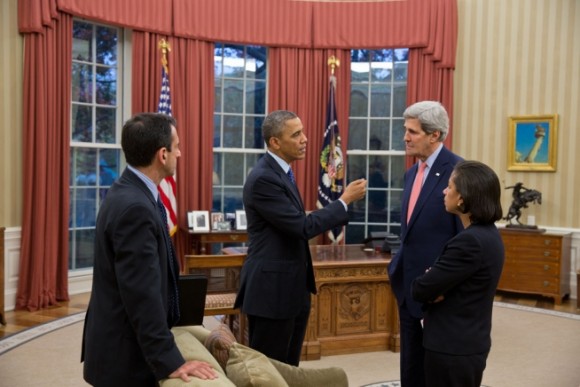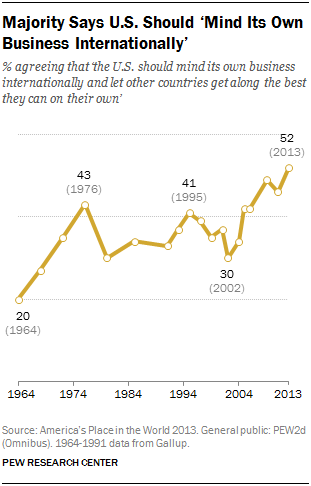![Obama-confused[1]](https://antiwar.com/blog/wp-content/uploads/2013/05/Obama-confused1-e1368542882894.jpg)
As the U.S. wrestles with the Karzai government to finalize a security agreement that would govern thousands of U.S. troops in Afghanistan for another decade, virtually everyone across every spectrum agrees that pulling out completely – the so-called ‘zero option’ – would be reckless and dangerous for America.
The U.S.-backed regime in Afghanistan is too weak to sustain itself without continued U.S. presence and aid, say supporters of keeping troops there. The Taliban is still alive and well, they add, and could provide al-Qaeda with a safe haven to attack the U.S., so we’ve got to stay!
First of all, if ten years of nation-building hasn’t established a self-sustaining government in Afghanistan, another ten won’t either. Second, the alliance between the Taliban and al-Qaeda is heavily exaggerated these days. The Taliban have shown zero interest in attacking any Western targets outside the borders of Afghanistan, and their alliance with al-Qaeda has cost them too much over the past decade to eagerly welcome them back in a September 10, 2001 style arrangement. Even if al-Qaeda did set up shop there, having a “safe haven in Afghanistan is hardly an essential ingredient in launching terrorist attacks on America. Al-Qaeda’s presence in Afghanistan did nothing to enable the 9/11 attacks, which is why the attacks were planned and carried out in Europe and the U.S.
Steven Metz at World Politics Review is one of the few in the mainstream to embrace the benefits of the “zero option.” He says the real question is whether the costs of continuing the occupation for another decade is worth the reasonably expected benefits (which are few).
But ultimately the question for the United States is not simply whether the Taliban and al-Qaida have a relationship, but whether the security benefits gained from a military presence in Afghanistan and billions of dollars in aid sustained for an indeterminate period justify the costs.
Such a commitment would be worthwhile only if it turned out that, one, the Taliban have not learned anything from the past 12 years—that is, if, once freed from direct American military pressure, they would again allow al-Qaida to use Afghan territory to launch attacks on the United States; and two, keeping roughly 8,000 U.S. troops in Afghanistan and sending billions of dollars in assistance would actually make a difference in preventing an al-Qaida attack on the United States or other American targets. Clearly a U.S. counterterrorism program with a major presence in Afghanistan would be more effective than no U.S. presence. But the issue is whether the increased effectiveness is worth not only the direct costs of the aid and U.S. troops, but also the opportunity costs, since that money and those troops could be doing something else that directly augments American security or prosperity.
Ultimately, it is hard to make a persuasive case that the benefits of sustaining a direct role in Afghanistan justify the costs.
Large majorities of Americans want to pull out of Afghanistan, and that’s with virtually nobody on TV or in the newspapers actually making the argument for the zero option. Even under the most favorable assumptions, the costs of continuing “the mission” in Afghanistan outweigh the benefits, if one could conceive of any.






 There was an uptick in this sentiment following the Vietnam War too, and it slowly receded. Nevertheless, the results are significant.
There was an uptick in this sentiment following the Vietnam War too, and it slowly receded. Nevertheless, the results are significant.